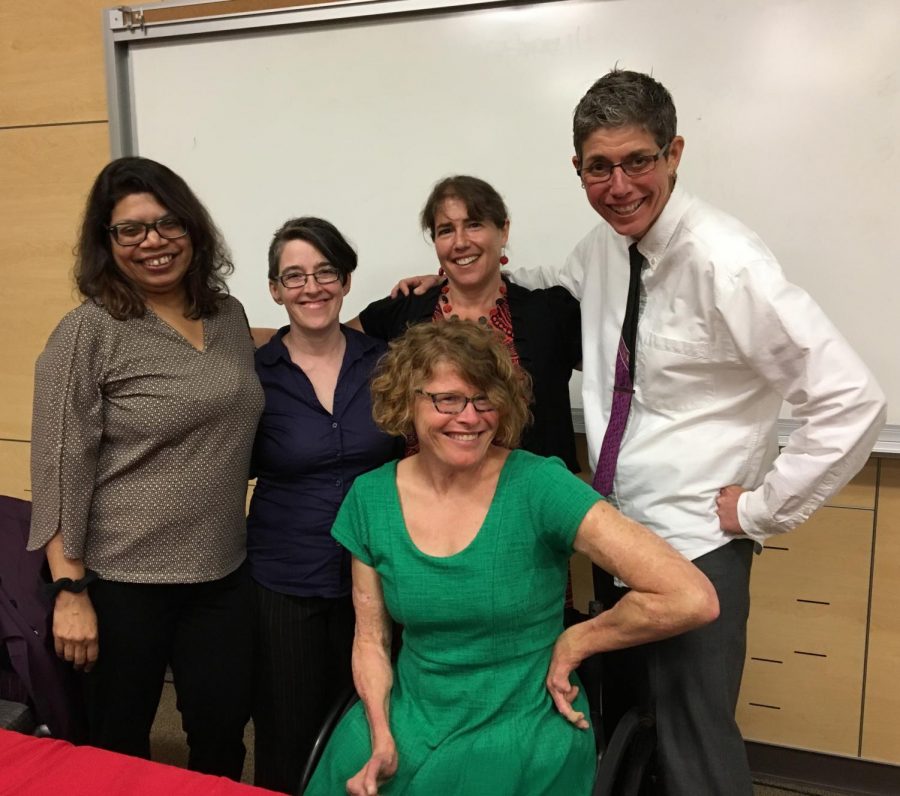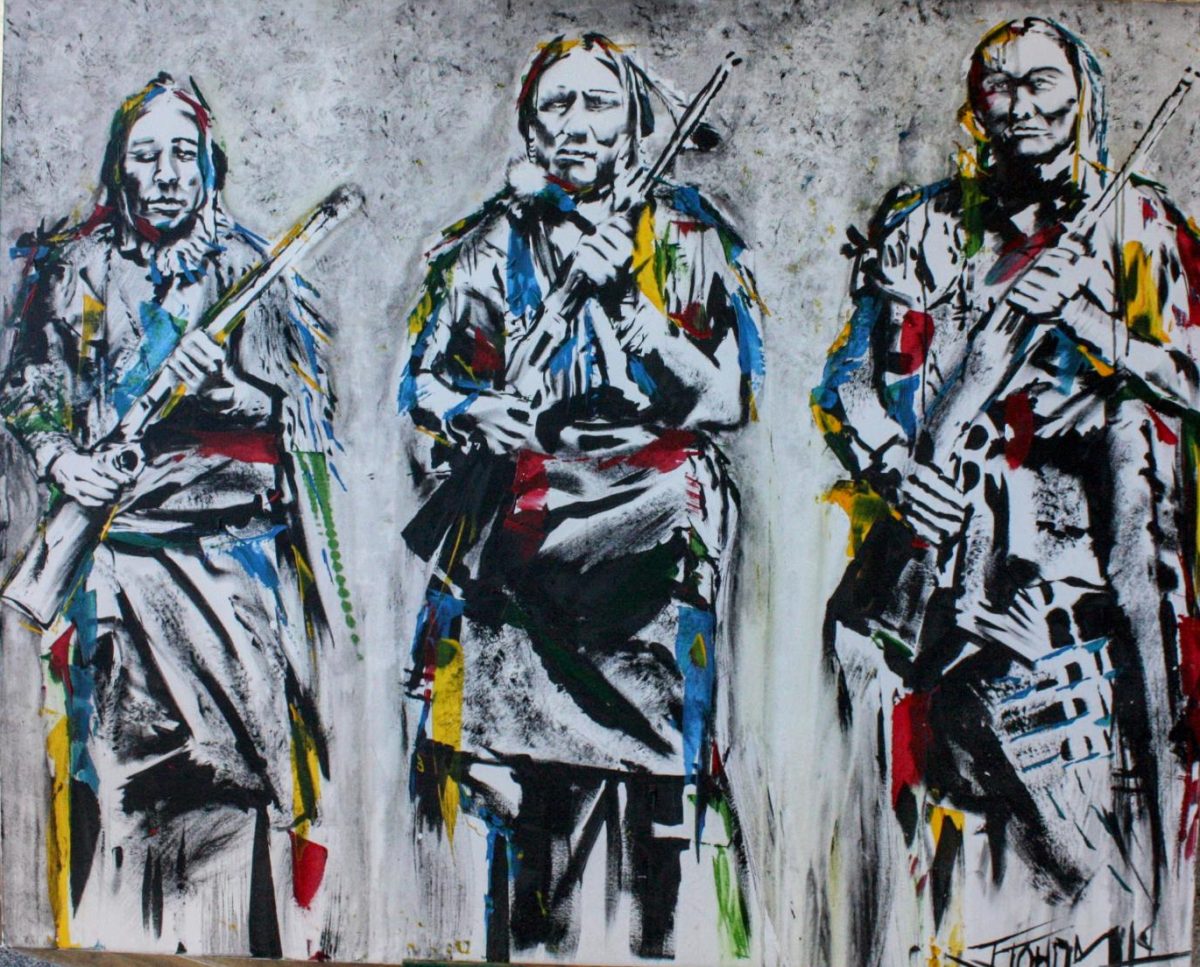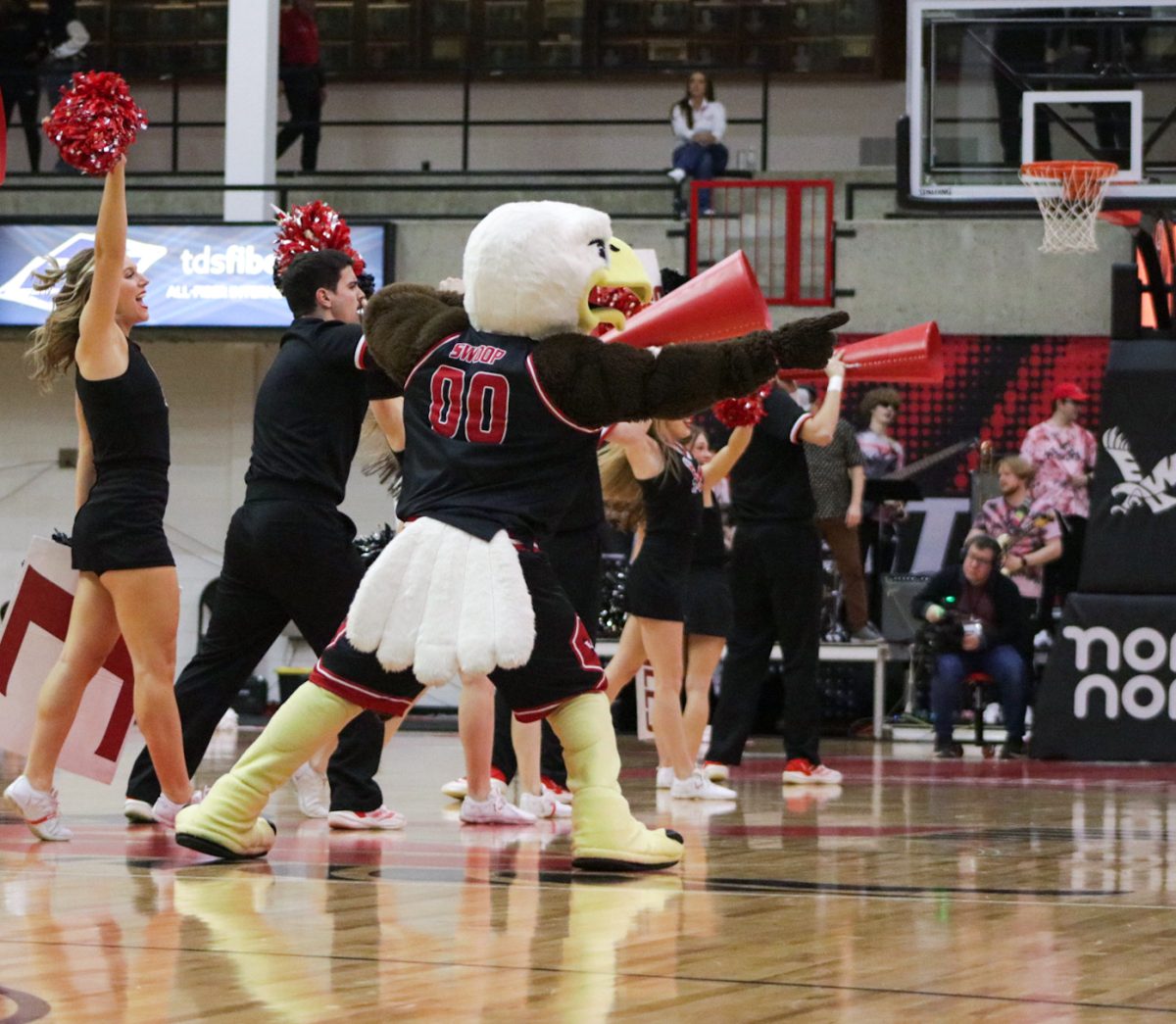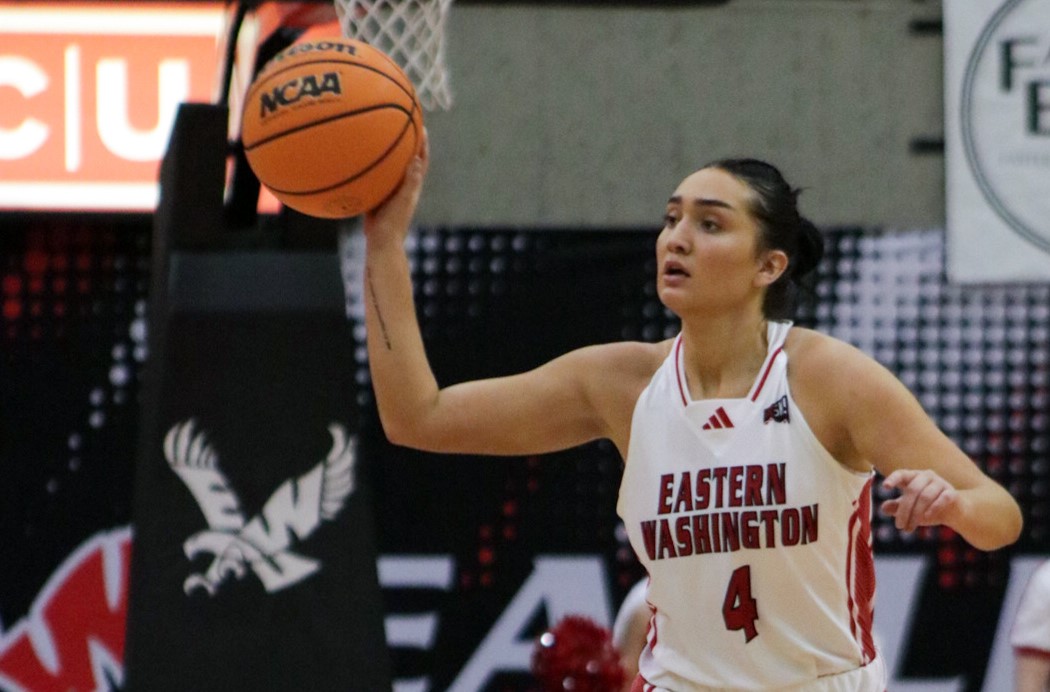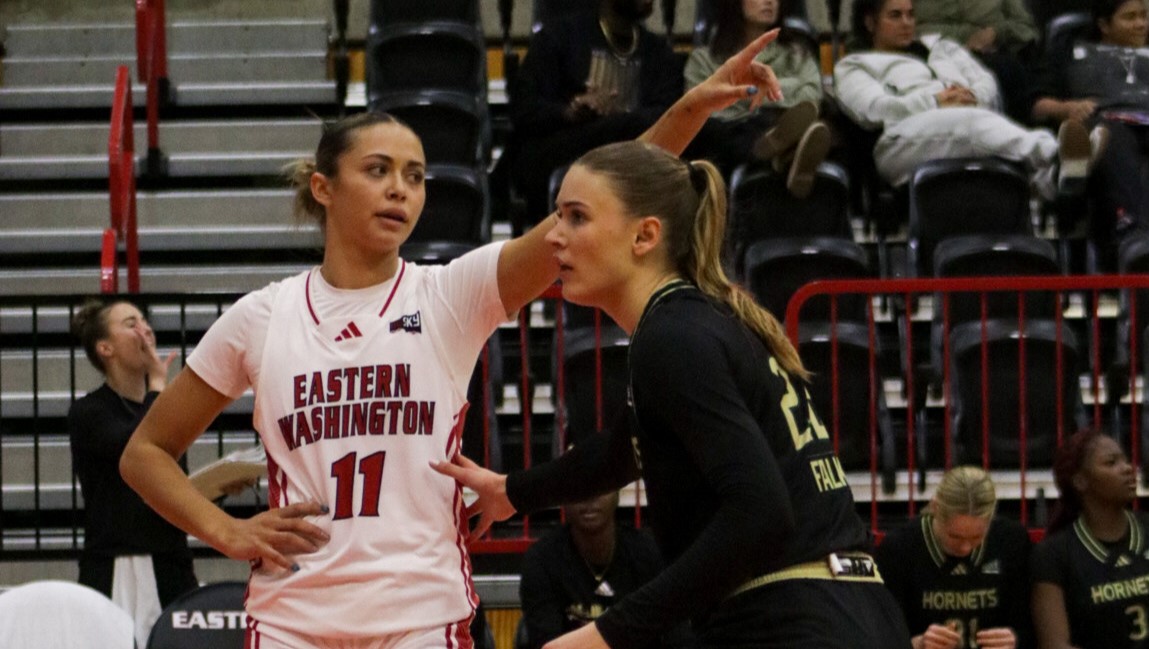Build your community: Disability scholars emphasize openness and collaboration
Front row: Alison Kafer, PhD. Back row: Nirmala Erevelles, PhD, Lisa Logan, Jessi Willis, PhD, Judy Rohrer, PhD. Erevelles and Kafer spoke recently at EWU for the “Feminist and Siability Studies: A Conversation” workshop.
May 22, 2019
Shelby Miksch is a first-year graduate student at EWU. Guest columns do not necessarily reflect the views and opinions of The Easterner, its staff members or Eastern Washington University.
Is it possible to discuss a complex topic without defining it? For Dr. Nirmala Erevelles and Dr. Alison Kafer, guest speakers at “Feminist and Disability Studies: A Conversation,” on May 16, the answer was an emphatic, passionate yes.
Kafer stated that she tries not to use the term “feminist disability studies” because of its assumed meaning—namely, a movement that focuses on the needs and voices of a small subsection of society while ignoring those of others who should also be included. Erevelles elaborated on these remarks, saying that “race and feminism and disability are all grouped together” and that they cannot be separated. She added that the study of these overlapping areas must critique what our society sees as a normal way of being.
So what is normal?
So what counts as normal? For a college student here at EWU, especially near the end of the quarter, stress is normal. A heavy workload is normal, and so is the feeling of pressure to pass one’s classes with a decent grade. For a student working with disability, all of this can be magnified in ways that may not be visible to their able-bodied peers. The pressure in higher academia to be as close to perfect as possible regardless of one’s personal difficulties can become crushing without self-compassion.
A possible means of circumventing this feeling, according to Kafer, is to be open about the unique challenges that disabilities may pose to your academic progress and to find peers who understand and share your struggles. Referencing the noted Chicana studies scholar Gloria Anzaldúa, Erevelles reminded those listening that the “spirit of the confessional”—that is, voicing publicly that you are having trouble meeting societal expectations—is revolutionary. Contrary to popular belief, expressing vulnerability is not weakness. Instead, by telling others of your difficulties, you are building a community for others who may likewise feel that they are falling short.
That sense of community was very much in evidence during the gathering on May 16. However, conversations like these are only one step in an ongoing process to make higher learning more accessible for all who wish to participate. Erevelles and Kafer both stressed the importance of joining together and making sure that all are lifted up during movements of social change. One voice can speak up, but it takes many voices in unison for an issue to be heard.
“Feminist and Disability Studies: A Conversation” was coordinated by the EWU Women’s and Gender Studies Program. This outstanding discussion was additionally sponsored by the WAGE Center and Disability Studies. Gatherings like this serve to enrich our university as a whole, and students are strongly encouraged to keep an eye out for and participate in future events which support and encourage campus diversity.



